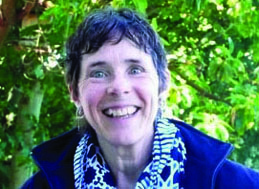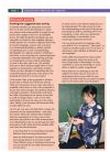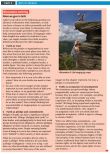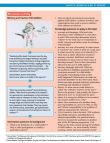TOK and inquiry-based learning

They amass information, but often do not understand how to deal with it critically and thoughtfully. They study their school subjects, but often do not grasp how those subjects build their knowledge.
Similarly, I’ve met through workshops many teachers who feel daunted by teaching TOK. The responsibility of guiding students through the whole of knowledge is enough to make anyone laugh weakly at first. How does a subject specialist manage an overview of the whole?
I’m fully convinced that the way to build facility and ease, for both students and teachers, is a method of genuine inquiry – thoughtfully posing questions about knowledge, exploring perspectives on what and how to respond, and treating the knowledge claims that result with an open and critical mind.
Inquiry versus delivery
In a ‘delivery-based’ approach to teaching a teacher takes the role of an expert who conveys knowledge to learners. In an inquiry-based approach, in my opinion more appropriate for TOK, the teacher acts as a guide, using questioning and discussion to stimulate student investigation and analysis of knowledge. In TOK, after all, we do not teach a body of information. We encourage students to reflect on their personal knowledge and to see how the shared knowledge of the different disciplines is built.
Stressing exploration and analysis creates an approach that works for both students and teachers. As they take an active role in considering knowledge claims, justifications, perspectives, and implications for thought and action, students build their critical skills and their confidence in applying them to their academic learning and the world.
As they take the role of guides, teachers shift from preparing lectures full of assertive sentences to planning discussions with interrogative ones. Teachers can accept not being the expert on every topic, as they support students toward considering what it means to be an “expert” in each of many areas of knowledge. What ways of knowing does the practitioner use in each area? What counts as reliable knowledge, or insightful understanding, and how is the process of evaluation of knowledge carried out in each area? How do the practitioners of the present build on the contributions of those in the past?
Guidance
Even though teachers need not be experts on all areas of knowledge, there is still considerable preparation necessary in running good classes of inquiry. The discussion in the TOK classroom should not shoot off in any direction. It has to be appropriate for the course.
This was the motivation behind my writing, with my co-authors, the new Theory of Knowledge 2013 course book. We have set it up to open topics with discussion activities and questions for reflection, and to follow the discussions with background on topics. This background explanation and illustrative storytelling stretch student understanding and place it in a larger context of culturally or academically shared knowledge. The book is designed to provide a complete resource for teachers, for whatever route they plan to take through the course.
Eileen Dombrowski is an experienced TOK workshop leader who has taught TOK in international schools for nearly 25 years.
Theory of Knowledge Activities
© 2024 Oxford University Press. All rights reserved.




